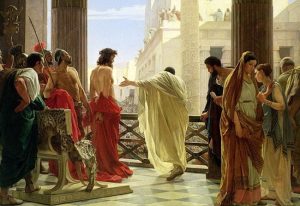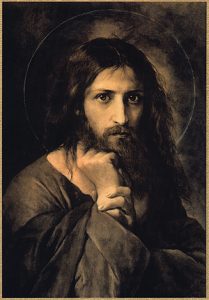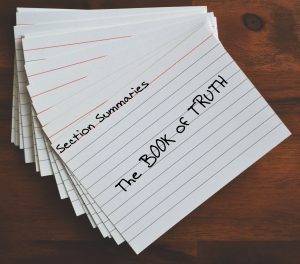 This paper is mostly about the social, cultural, political, philosophical, and religious context of the time and place in which Christ was born in 1st century Judea.
This paper is mostly about the social, cultural, political, philosophical, and religious context of the time and place in which Christ was born in 1st century Judea.
The paper begins with an introduction by a secondary midwayer, who was once attached to the Apostle Andrew, that is going to report about the life of Yeshua as observed by other midwayers and by the Apostle Andrew.
Then the paper follows with a description of the Western world in the 1st century after Christ. Christ came to earth at a time of spiritual revival, not decadence. European civilization was unified by: 1) the Roman political system, which had made the Mediterranean a safe and united region, 2) Greek language, culture, and philosophy, which had spread over the West and East, and 3) the rapid spread of Jewish religious and moral teachings.
Since the Jews were both Western and Eastern peoples, and Israel and Syria were enjoying a period of prosperity and relative peace, and commercial intercourse with both East and West, the Jews were in the perfect position to spread the new religion of the gospel.
Then the paper proceeds to describe the Jewish people of Yeshua’s time. The Jews were in a perfect location, since Israel was the meeting place of three continents. The dispersion of Jews outside of Israel with more than 200 synagogues and religious communities throughout the Roman world provided the cultural centers in which the new gospel of the kingdom would find its initial reception, and then from here, it would go to the rest of the world.
Early Jewish synagogues tolerated a fringe of Gentile believers, and it was among this fringe that St. Paul made the bulk of his early converts to Christianity. Also, the centralization of the Jewish Temple worship in Jerusalem assured the continuity of Jewish monotheism and the ability to spread a new and enlarged concept of the God of all nations to the entire world.
The Jews were expecting a Messianic deliverer, and had trouble discerning that their world mission was spiritual, not political.
Then the paper deals with the nature of Gentile society during Yeshua’s time. Mediterranean society of that time was broken down into five strata: 1) the aristocracy, 2) business groups, 3) a small middle class, 4) the free proletariat, and 5) the slaves. The small middle class was the moral backbone of the early Christian church, and the lower classes and slaves made up the bulk of this early church. This early Christian movement was not an economic movement trying to lessen the miseries of the depressed social classes.
Then we are exposed to a summary of the Gentile philosophical schools of Yeshua’s time. Gentiles were morally inferior to Jews, but some nobler Gentiles had great potential for the seed of Christianity to sprout and bring forth abundant moral and spiritual fruit.
The Gentile world was dominated by 4 major philosophies more or less derived from Platonism: 1) the Epicureans, who were dedicated to the pursuit of happiness and who freed the Romans from fatalism by giving them a sense that they could do something to improve their earthly status, 2) the Stoics who taught living in harmony with nature, with God, and that virtue is its own reward. They called themselves the “offspring of God”, but they failed to find God and to see themselves as children of a loving Father.
3) the Cynics, who derived much of their doctrine not just from Diogenes of Athens but also from remnants of the teachings of Melchizedek. They preached simplicity and virtue, urged men to not be afraid of death, and believed man could save himself if he would. Wandering Cynic preachers did much to prepare the populace for the later Christian missionaries. Finally, there are 4) the Skeptics who believed knowledge is fallacious, and that conviction and assurance are impossible. These philosophies were for the strong and wise, with the exception possibly of Cynicism, and thus, unlike the gospel, they were not religions of salvation for even the poor and weak.
The next section of the Paper deals with the religions of the Gentile world of Yeshua’s time. Religions up until then had been tribal and national, and not personal. The religions of the Gentile West in Yeshua’s time were: 1) Pagan cults, composed of Hellenic and Latin mythology, patriotism and tradition, 2) Emperor worship, which was the deification of man as symbol of the state. The Jews and Christians resented this religion, and were both persecuted for it. 3) Astrology, a pseudo-science from Babylon developed into a religion throughout the Greco-Roman world, and 4) the mystery religions, which were a flood of mystery cults from the Levant which had captured the hearts of the lower classes of the Greco-Roman world because they promised individual salvation.
Even though Christ’s teachings are not the same as these mystery religions, these religions did much to prepare the way for the appearance of Christ and the acceptance of the gospel. They did this by putting an end to national and tribal beliefs, and by focusing instead on personal salvation and fraternal brotherhood, on survival after death, and promising an eternal life in blissful otherworldly realms.
The paper then proceeds to describe the Hebrew religion of Christ’s time. There were two types of Judaism: the Western/Hellenized Judaism and the Eastern (Babylonian) Judaism. The early translation of the Hebrew Scriptures into Greek at Alexandria made Hellenized Judaism the dominant wing of the Jewish religion, and also influenced Paul’s westward drift instead of focusing on the East.
The attempt to harmonize Jewish religion with Greek philosophy produced great confusion until Philo of Alexandria showed up to create a synthesized system between the two. This teaching by Philo is what prevailed in Israel during Yeshua’s time, and it was what Paul utilized for the foundation of his Christian cult.
Philo was one of the greatest teachers since Moses, and he did much to restore the concept of the Paradise Trinity and even glimpsed the presence of Thought Adjusters better than Paul.
Jewish theology survived as practiced at Jerusalem, and despite the differences between the Western Hellenic Jews and the Eastern Babylonian ones, they all agreed on Jerusalem as the center of their worship and in looking forward to the coming of the Messiah.
The paper next deals with the relationship between Jews and Gentiles during Christ’s time. By this time, Jews considered themselves different and superior to Gentiles, and thus they had trouble accepting Christ’s teaching of the universal brotherhood of man.
The Jewish people were held in spiritual bondage by the scribes, Pharisees, and the priesthood due to their ritualism, legalism and man-made traditions. This bondage to tradition prevented the Jews from fulfilling their divine destiny as messengers of the new gospel of religious freedom and spiritual liberty. The motion of religious evolution passed westward to the European peoples.
The next section deals with previous written records used by the midwayers to retell the story of Christ. Apart from using the lost record of the Apostle Andrew and the collaboration of a vast host of celestial beings who were on earth during Christ’s time, they also used the four main Gospels.
The Gospel of Mark presents Christ as a minister, as a man among men. In reality, this Gospel came about because Peter thought the Church at Rome needed a written record of Christ’s life. The Gospel of Matthew was aimed at Jewish Christians, and so Christ was presented as a fulfillment of the Hebrew prophets and as a son of David who respects the Law and the prophets. It was not written by Matthew, but by one of his disciples named Isador.
The Gospel of Luke was written by a gentile convert of Paul. He gathered facts from Paul and others to present Christ as a friend of publicans and sinners. Finally, the Gospel of John was written because John had the other Gospels, and he saw that much had been omitted from them. It was written by Nathan, a Greek Jew from Caeasarea. John supplied material for this Gospel from his own memory.
The Gospel writers presented honest pictures of Christ as they saw and remembered him.
This paper ends with an acknowledgement by the secondary midwayer responsible for retelling the life of Christ. The midwayer says that he wants to write a record of Yeshua’s life that will be enlightening and helpful not just to the current generation of men, but also to all future generations. In addition, he affirms that he has tried to borrow concepts as expressed by human minds to make it more understandable for humans, and that only a few times has he had to borrow concepts as expressed by midwayers or superplanetary beings.
The concepts of Yeshua’s teachings come from more than two thousand human beings who have lived on earth from the days of Yeshua to the time of the revelations of the Urantia Book. The midwayer ends with an acknowledgement of the indebtedness of the Brotherhood of the United Midwayers of Urantia to all the sources of record and concept which have been used to elaborate the restatement of Christ’s life on earth.

 This paper is mainly about Christ Michael’s preparation prior to the incarnation on Urantia, and the counsel he receives from his elder brother and Paradise counsellor Immanuel.
This paper is mainly about Christ Michael’s preparation prior to the incarnation on Urantia, and the counsel he receives from his elder brother and Paradise counsellor Immanuel. The Master was aware that the apostles were not fully comprehending all of his teachings, especially about the nature of the kingdom – 140:8.1
The Master was aware that the apostles were not fully comprehending all of his teachings, especially about the nature of the kingdom – 140:8.1